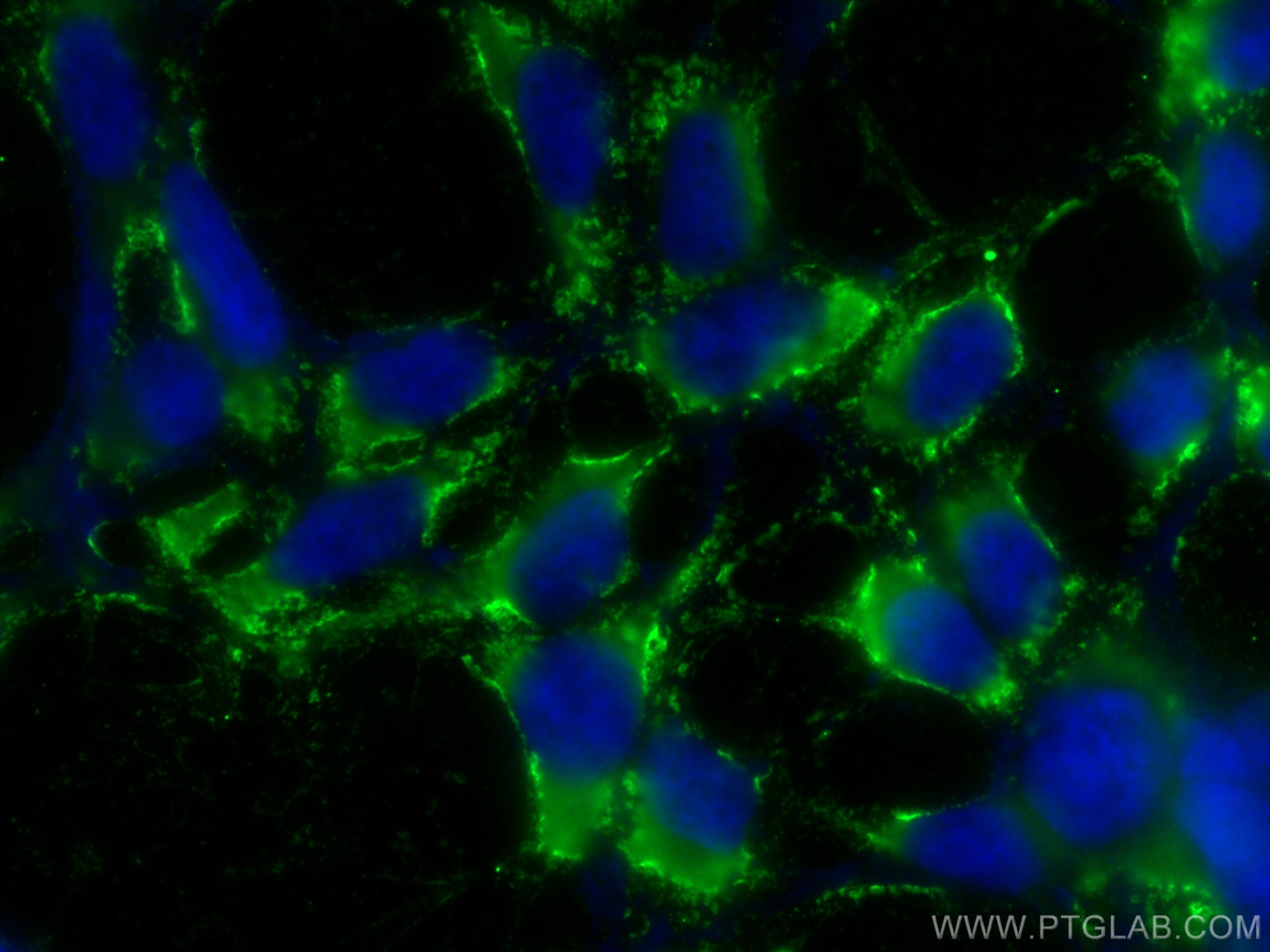SEC63 Monoklonaler Antikörper
SEC63 Monoklonal Antikörper für IF
Wirt / Isotyp
Maus / IgG1
Getestete Reaktivität
human
Anwendung
IF
Konjugation
CoraLite® Plus 488 Fluorescent Dye
CloneNo.
1C10E1
Kat-Nr. : CL488-67352
Synonyme
Galerie der Validierungsdaten
Geprüfte Anwendungen
| Erfolgreiche Detektion in IF | HEK-293-Zellen |
Empfohlene Verdünnung
| Anwendung | Verdünnung |
|---|---|
| Immunfluoreszenz (IF) | IF : 1:50-1:500 |
| It is recommended that this reagent should be titrated in each testing system to obtain optimal results. | |
| Sample-dependent, check data in validation data gallery | |
Produktinformation
CL488-67352 bindet in IF SEC63 und zeigt Reaktivität mit human
| Getestete Reaktivität | human |
| Wirt / Isotyp | Maus / IgG1 |
| Klonalität | Monoklonal |
| Typ | Antikörper |
| Immunogen | SEC63 fusion protein Ag5783 |
| Vollständiger Name | SEC63 homolog (S. cerevisiae) |
| Berechnetes Molekulargewicht | 88 kDa |
| Beobachtetes Molekulargewicht | 90 kDa |
| GenBank-Zugangsnummer | BC047221 |
| Gene symbol | SEC63 |
| Gene ID (NCBI) | 11231 |
| Konjugation | CoraLite® Plus 488 Fluorescent Dye |
| Excitation/Emission maxima wavelengths | 493 nm / 522 nm |
| Form | Liquid |
| Reinigungsmethode | Protein-G-Reinigung |
| Lagerungspuffer | BS mit 50% Glyzerin, 0,05% Proclin300, 0,5% BSA, pH 7,3. |
| Lagerungsbedingungen | Bei -20°C lagern. Vor Licht schützen. Nach dem Versand ein Jahr stabil. Aliquotieren ist bei -20oC Lagerung nicht notwendig. 20ul Größen enthalten 0,1% BSA. |
Hintergrundinformationen
SEC63 is a integral ER membrane protein. SEC63 and SEC62 form a dimeric complex and play a central role in translocation of nascent and newly synthesized precursor polypeptides into the ER. Mutations in the gene encoding SEC63 cause polycystic liver disease in humans. The intact SEC63 protein is usually detected around 83-90 kDa, while smaller cleavage products can be observed by autophagy proteolysis (PMID: 25052096)
Protokolle
| Produktspezifische Protokolle | |
|---|---|
| IF protocol for CL Plus 488 SEC63 antibody CL488-67352 | Protokoll herunterladen |
| Standard-Protokolle | |
|---|---|
| Klicken Sie hier, um unsere Standardprotokolle anzuzeigen |


